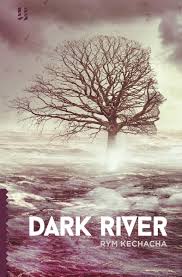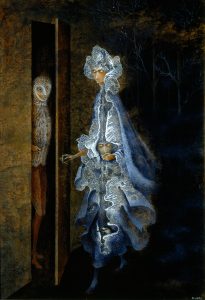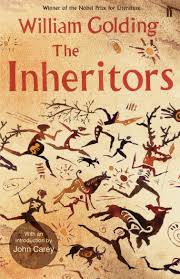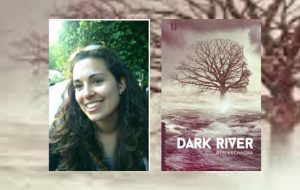Author Spotlight – Rym Kechacha
Joining us for today’s Author Spotlight is Rym Kechacha!
Rym Kechacha is a writer and teacher from London. Her debut novel Dark River is released by Unsung Stories in February 2020. She currently lives in Norwich with her husband, too many books and a tiny baby.
You can find her @RymKechacha or rymkechacha.squarespace.com
Welcome to the Hive, Rym. Let’s start small: tell us about a great book you’ve read recently!
City of the Dead by Sara Gran. Claire De Witt is a private detective who consults the I Ching and the symbols in her dreams to solve crimes. This is the first book in the series, set in New Orleans in the aftermath of Hurricane Katrina. It’s got a swampy, hallucinogenic kind of vibe that completely entranced me, I wanted to dive into the pages of the book and be her friend immediately, although I’m far too square for her.
Okay, time to escalate things: reality warps and you suddenly find yourself leading a D&D-style party through a monster-infested dungeon. What character class are you, and what’s your weapon of choice?
I’ve never played Dungeons and Dragons! Although, in this situation I would want to have some kind of monster qualities myself, maybe a Medusa-like stare or a Siren-like singing voice that would make them think twice about attacking me.
Offence is the best defence!
When you’re not trawling through dungeons, how do you like to work? (In silence, with music, or serenaded by the damned souls of a thousand dead shrimps? Do you prefer to type or to hand-write? Are you an architect or a gardener? A plotter or a pantser? D’you write in your underwear, or in a deep-sea diver’s suit?) Tell us a little bit about your writing method!
 I love music at almost all other times but I find it so distracting when I’m writing and if there are lyrics then it’s game over. I start listening to the rhythms of what I’m hearing rather than trying to hear the sounds of the story and it just doesn’t work. I don’t need silence or anything special though, luckily I can work pretty much anywhere!
I love music at almost all other times but I find it so distracting when I’m writing and if there are lyrics then it’s game over. I start listening to the rhythms of what I’m hearing rather than trying to hear the sounds of the story and it just doesn’t work. I don’t need silence or anything special though, luckily I can work pretty much anywhere!
At the very beginning of a new thing, I open up a new word document and just type some random stuff about the idea I’ve had onto the page so it’s not blank anymore, and then I just build it up until whatever it is either gets finished or gets abandoned… and I’m sorry to say it mostly gets abandoned because I find there just isn’t enough flesh on whatever it is to keep me (let alone anyone else) satisfied. Sometimes I abandon projects because they’re not working yet and I need to wait for a new perspective to get them flowing again (although I have no idea when that new perspective will show up!) and sometimes I abandon them because they’re just never going to work. Unfortunately, I can’t always tell the difference!
I’m a devoted planner, although I keep redoing my plan as I go along when I have new ideas. Most of my ideas come to me when I’m busy writing another scene, so I move up and down the document scrawling in notes for what’s to come, then change my plan to fit around the new stuff. I sort of see the start of the process like a block of stone might be to a stonemason – the book is in there somewhere, already wearing the shape it wants to take, I just have to uncover the form of it that’s already there.
What (or who) are your most significant fantasy influences? Are there any creators whom you dream of working with someday?
As a child I loved Diana Wynne Jones (and I still do!) From her work I got the impression of magic as this wild, anarchic force in the world that warps the very fabric of reality, this has not only influenced the way I write but also the way I see the world we live in. I love Tamora Pierce too and revisiting her books as an adult is like wrapping a warm blanket around myself, especially the Emelan series.
That’s an excellent description of DWJ’s magic systems.
What was the last thing you watched on TV and why did you choose to watch it? Alternatively, what games have you enjoyed recently?
I’ve been watching the films of Bengali director Satyajit Ray and marvelling at his artistry. Every single one of his films is a masterclass in storytelling and his characters are fascinating and complex. My favourite so far is The Chess Players, set in Lucknow as the East India Company takes over the city. He was a bit of a renaissance man too, composing music and writing prolifically as well as directing loads of films, so I’m trying to get hold of more of his work to enjoy.
The world shifts, and you find yourself with an extra day on your hands during which you’re not allowed to write. How do you choose to spend the day?
Hopefully it’s a spring or a summer day and I can spend it in my garden, planting and harvesting and just enjoying the sunshine and all the lovely scents and textures. I should point out that I just moved house and my garden isn’t quite this Eden (yet) but I’ve got big plans for the spring to make it something special.
Can you tell us a little something about your current work(s) in progress?

El Encuentro, 1962 Remedios Varo
It’s a fantasy novel based on the paintings of the Spanish artist Remedios Varo. She left Europe for Mexico City during the war and lived there for the rest of her life where she painted these darkly beautiful works of what I think I’d call a kind of mythic surrealism. The novel takes images and characters from her work like jugglers, owl women and captured moons and places them in a world of ancient contracts and loyalties.
What’s the most (and/or least) helpful piece of writing advice you’ve ever received?
I went through a stage of reading every book about structure and plot and narrative I could find. A lot of them were specific to screenwriting but they were all so useful in thinking about the craft of storytelling that I’d recommend an in-depth study of that aspect of writing to anyone.
The best nugget I ever got was someone who said that all your writing, even the rubbish bits, is practice. A pianist doesn’t expect every single one of their rehearsals to be perfect and performance quality and an artist makes many sketches before they paint. To enjoy the process of drafting and throwing away, to see a lot of my word count as piano or drawing practice for the real thing helps me to detach from perfectionism and teaches me a lot.
Every writer encounters stumbling blocks, be it a difficult chapter, challenging subject matter or just starting a new project. How do you motivate yourself on days when you don’t want to write?
I wish I had a method for getting back to work when it’s going badly! Usually it’s going badly for a reason, like there’s something wrong with the plot or a character doesn’t make sense and I need to sort that out before I can progress. Sometimes the knots untie themselves while I’m doing something else like cycling, cooking or sorting out the laundry. Sometimes the knots get undone simply by sitting and staring at the screen. Sometimes they don’t come undone at all and I need a break from the project entirely.
On days where I feel unmotivated to write I just busy myself with procrastination until I eventually settle down to my computer and manage to add a couple of sentences, which will feel like enough of an achievement that I can consider my dry spell vanquished. At the first draft stage I have a weekly word count target which I find very motivating. I don’t have any external rewards for meeting this target, just the satisfaction of watching the number tick up and moving through the story.
If you could visit any country at any point in history, where/when would you go, and why?
I’d love to go back in time and visit a pre-agricultural society, anywhere in the world. I feel like we can barely imagine the ways in which this kind of culture would be different to ours, what they’d value and how they would see the world that I think you’d have to be there to even try to get it. Failing that, I’d like to travel into the future, to anywhere on Earth, just to reassure myself that it might be alright, after all.
Tell us about a book that’s excellent, but underappreciated or obscure.
 The Inheritors by William Golding is about a Neanderthal family who come into contact with beings a little like them. OK, so he did win a Nobel prize and his other work is studied by almost every school child in the land, but I feel that this book really pushes the boundaries of empathy and language. It is a challenge but worth it.
The Inheritors by William Golding is about a Neanderthal family who come into contact with beings a little like them. OK, so he did win a Nobel prize and his other work is studied by almost every school child in the land, but I feel that this book really pushes the boundaries of empathy and language. It is a challenge but worth it.
Finally, would you be so kind as to dazzle us with an elevator pitch? Why should readers check out your work?
Dark River tells the story of two families escaping catastrophic climate change, 8000 years apart. In Mesolithic Doggerland and London in the twenty second century two young mothers try to lead their families to safety, only to find they can’t always protect them. It’s about motherhood, unconditional love and the wild power of the earth.
That’s great, thanks so much joining us today Rym, and good luck with your debut!
Dark River is out NOW.

